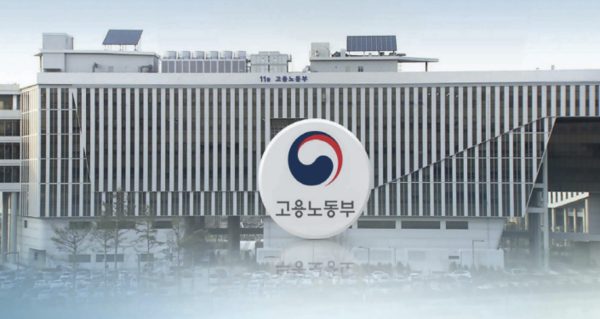On December 8th, the Ministry of Employment and Labor (MOEL) announced guidelines to prevent discrimination against fixed-term, temporary, and non-standard workers. Non-regular employment has been controversial because of its unfavorable treatment over the years. Thus, the Sungkyun Times (SKT) seeks to lend an ear to the non-regular workers’ appeals by exploring the reality of their labor.
Working as a Non-Regular Employee
- Who Are Non-Regular Employees?
Non-regular employment is a classification criterion for employment types, such as fixed-term workers, temporary workers, and non-standard workers. Fixed-term and temporary workers cannot expect continuity of employment for involuntary reasons. Temporary workers are typically engaged for a short term or occasionally without any firm commitment that the work will continue. Non-standard workers are employed by an outsourcing company and dispatched to another company. Unlike regular workers, who do not have a fixed contract period and have a guaranteed retirement age, non-regular workers are subject to dismissal once the contract expires. Moreover, regular workers benefit from general salary raises and promotion systems, while non-regular workers do not, even if an agreement is extended. Due to these discriminant natures, irregular employment has been a controversial labor issue in Korea for a considerable period.
- Changes in the System
Non-regular employment has surged in Korea since 1997, as a severe foreign exchange crisis hit the country and the government restructured the labor market. During this time, the government made employment protection regulations of the Labor Standard Act more flexible so that employee dismissals no longer need to be justifiable. This meant a significant increase in non-regular employment since companies preferred to pay smaller wages to non-regular workers rather than guaranteeing regular employees all their costly rights. To rectify the inequity issues resulting from previous policies, the government developed measures such as the Act on the Protection of Fixed-Term and Part-Time Employees in 2006, which stated that these workers should become regular workers after working for two years. Nonetheless, this policy failed as firms slyly avoided legal restrictions by dismissing workers within two years or signing monthly standard labor contracts. Later, in 2007, the Discrimination Correction System concerning non-regular employees was introduced so that they could ask the Labor Relations Commission for corrective action when they received unreasonable discriminatory treatment. Different governments modified the system for more efficacy, although verifying discrimination was still considered time-consuming. Last December, the MOEL announced guidelines that would allow employees and employers to be aware of the rights of non-regular workers. For instance, the guidelines provide a self-check table to examine if the type of employment affects discriminatory treatments.

The Main Issues of Irregularity
- Same Work for Less Money
Several methods were employed to enhance the conditions of non-regular workers, but irregularity has still led to inequality in wages and welfare. According to Statistics Korea’s 2023 Economically Active Population Survey, the average monthly salaries of regular and non-regular workers differed significantly by about ₩1.6 million. Yet, the difference was attributed to working status rather than the work’s content. However, the problem exists not only in the wage gap but also in salary negotiations. On January 11th, the Korean Teachers and Educational Worker’s Union’s Seoul Special Committee for Non-Regular Teachers requested the Office of Education for a fair salary increase. The justification was that while regular teachers get salary increases each year, fixed-term teachers’ salaries are only usually increased when writing a contract, meaning even if they are eligible for a raise, they would not get it if the contract had not ended. Furthermore, non-regular workers are also excluded from various welfare benefits. In the figures reported by Statistics Korea’s 2023 survey, it was found that regular workers had overall higher rates of benefits in retirement benefits, bonuses, overtime pay, and paid holidays compared to non-regular workers.

In an interview with the SKT, Lim Diana (Junior, Department of Korean Language and Culture Education, Yonsei University) pointed out, “When I worked part-time, I did not get any bonuses, and I had no way of finding out whether I was getting equal treatment.” As guidelines provided by the government are mere suggestions, it is difficult to confirm whether they were implemented; therefore, the dualism of labor markets is intensified.
- Working without Security
Non-regular employers have low job security since they have limited opportunities to become regular workers. Job uncertainty causes pressure on non-regular workers, constraining them to remain silent in events of unfairness. In an interview with the SKT, Shim Ye-eun (Sophomore, Department of English for International Conferences and Communication, Hankuk University of Foreign Studies) commented, “When I once worked in a restaurant, I was fired for management reasons. I felt vulnerable and impotent.” Job uncertainty also increases the difficulty in demanding fair damage compensation. A 2021 study by the Korean Labor Institute shows that non-regular workers were more exposed to industrial accidents but were unlikely to be adequately compensated. Furthermore, non-continuous employment obstructs the workers’ participation in trade unions. According to Statistics Korea’s 2023 survey, the participation rate in trade unions among non-regular workers was 2.5%, which was significantly low compared to the regular members’ 19.2%. Lastly, job insecurity can be a structural cause of youth unemployment, as this factor makes young people prefer to extend the job search period to start their careers directly in a secure position. According to a survey run by the job portal Incruit in March 2023, 54.4% of entry-level job seekers preferred to join a large-sized company as it offers relatively higher security.

Establishing a Better System
- Guaranteeing Equal Benefits
To address the wage gap issue, it is necessary to first consider the value of non-regular and regular employees’ labor with equal parameters. An amendment to the Labor Standards Act in July 2023 was proposed by adding a clause prohibiting discrimination according to employment type. In order to mitigate the extreme wage gaps, firms should be encouraged to establish a reasonable wage system that considers a job’s importance, skill level, and productivity. Secondly, to reduce the gap in welfare benefits, the MOEL should make discrimination prevention guidelines sanctionable rules rather than mere recommendations. The Discrimination Correction System affects local labor offices, but implementing mandatory guidelines would make workplaces more conscious of their actions. Lastly, each party must be held responsible to follow the guidelines. For instance, the responsibility for proving discriminatory treatment should be imposed on non-regular workers, and the verification of equal treatment on employers, respectively. At the policy debate held at a labor conference in March 2023, Kwon Hyuk, a Professor of Law at Pusan National University, stated, “Establishing a legal system for firms to self-verify that there is no discrimination at the workplace is the way to minimize social conflict.”

- Guaranteeing Equal Protection
To achieve higher levels of job protection, it is crucial to find a balance between security and flexibility through government intervention that supports non-regular jobs. In the case of France, non-regular workers are paid 10% of total wages as employment insecurity benefits. Similar benefits should be introduced in Korea through government subsidies so that workers can alleviate the burdens of uncertain finances and job security. On the other hand, industrial accident protection procedures must be strengthened in favor of non-regular workers. To accomplish this, the government could consider a pre-warranty system, as it allows the workers to receive medical reinforcement without having to wait until the accident is proven to be an occupational disease. This way, non-regular workers can get immediate treatment, and firms cannot pressure or coax employees to discontinue the approval process. Lastly, non-regular workers must be more qualified to participate in trade unions. Establishing dismissal protection laws may help prevent workers from being too passive about claiming their rights. With a higher opportunity to join unions, non-regular workers would have a better chance of getting their voices heard in the organization and progressively have their rights guaranteed.
Discussions are taking place for an equitable and unbiased labor culture; however, only some are guaranteed the same benefits or level of safety in the controversial labor market. The SKT hopes that Kingos also reflect on this issue of discrimination against non-regular workers, an afflictive reality for many.
